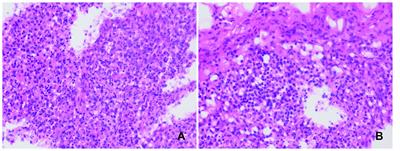Kikuchi-Fujimoto disease evolves into lupus encephalopathy characterized by venous sinus thrombosis: a case report
Kikuchi-Fujimoto disease (KFD) is a benign, self-limiting illness that can progress to systemic lupus erythematosus (SLE) in approximately 30% of cases.

Neurological injuries can occur in both diseases, albeit with distinct presentations. Venous sinus thrombosis is a serious cerebrovascular complication in patients with neuropsychiatric SLE but is rarely observed in patients with KFD.
The involvement of various antibodies, particularly antiphospholipid antibodies, can cause vascular endothelial cell injury, resulting in focal cerebral ischemia and intracranial vascular embolism in SLE. However, there are cases in which thrombotic pathology occurs without antiphospholipid antibody positivity, attributed to vascular lesions. In this report, we present a case of KFD and lupus encephalopathy featuring cerebral venous sinus thrombosis, despite the patient being negative for antiphospholipid antibody. We also conducted a comparative analysis of C3 and C4 levels in cerebrospinal fluid (CSF) and peripheral blood, along with the protein ratio in CSF and serum, to elucidate the pathological changes and characteristics of lupus encephalopathy.
Read the full article at the original website
References:
